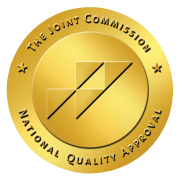Confronting Anxiety Disorder Stigma
Anxiety is commonly associated with feelings of helplessness. Fear and the constant analyzing of life and its circumstances, even choosing to stop engaging with activities and people, are all common with anxiety. People struggling with anxiety can feel like they can’t control their feelings and emotions.
Anxiety is pervasive. One in four people in the US has some form of anxiety. But very few people with anxiety disorders actually get mental health treatment for anxiety.
One reason? People think you should toughen up. Or you should “Just calm down and stop being so dramatic.” Maybe you have heard them too? “You’re too sensitive.” “It’s all in your head.”
Whatever it is you have heard or even said, anxiety stigma exists. And it is important to confront it.
When there is an anxiety disorder stigma, it can make matters worse. If being singled out and made to feel abnormal triggers panic attacks, the fear of being stigmatized can create a cycle of anxiety that perpetuates increasingly worse, intense feelings.
What Is Anxiety Disorder Stigma?
First, we should take a second to understand what stigmatization is. A stigma is something that people perceive as a mark of shame. Stigmas, as they relate to mental health, are generally categorized in three ways:
- Social Stigmas:These social norms cause individuals to discriminate against those they feel are disgraceful in some capacity. This can be split into two categories:
- Actual: What people actually believe about a disorder
- Perceived: What a person believes others think about their disorders
- Structural Stigmas:These are the social norms as they relate to systems of power, the actual laws, rules, and regulations that may affect the day-to-day lives of stigmatized groups. These are generally the leading factors that deny stigmatized individuals and groups the services, resources, and opportunities they may need.
- Self Stigmas:Relating to Perceived Social Stigmas, this is the negative self-awareness that stigmatized individuals may have about themselves, the person’s own beliefs in how their disorder is a sign of their failures rather than a consequence of a treatable disorder.
Consequences of Anxiety Disorder Stigma
Even though there are numerous treatments and therapies for anxiety, and despite anxiety being one of the most common psychological disorders, only around 36% of those suffering from an anxiety disorder receive treatment.
This is likely due to the high rate of individuals with the Perceived Stigma that anxiety disorders don’t exist. Many individuals perceive anxiety as a personal weakness, something they must ‘deal with’ as opposed to something that must be treated.
This is particularly troublesome when people with anxiety disorders are 6 times as likely to be hospitalized than those without anxiety for psychiatric disorders. Untreated anxiety can also be a pipeline to depression and increases the likelihood of suicidal thoughts. Those with anxiety who suffer from stigmatization are likely to perceive themselves as weak and suffer from low-self esteem, doubt, and internalized shame.
The Importance of Anxiety Education
Anxiety is the most common psychiatric disorder and is treatable through therapy and medication. Still, as long as stigmas against anxiety disorders exist, people will continue to feel isolated and ashamed and won’t seek readily available help that is out there.
Common Treatments of Anxiety Disorders:
- Exercise: Regular exercise is an effective way to manage anxiety. It helps reduce stress and releases endorphins, improving mood and reducing anxiety.
- Relaxation techniques: Relaxation techniques, such as deep breathing, progressive muscle relaxation, and guided imagery, can help you manage anxiety by reducing tension and promoting relaxation.
- Cognitive-behavioral therapy (CBT): CBT is a type of psychotherapy that focuses on identifying and changing negative thought patterns and behaviors contributing to anxiety. It’s a highly effective treatment for anxiety and can be done in an outpatient mental health program.
- Psychotherapy: Psychotherapy is a type of talk therapy that involves meeting with a mental health professional to discuss your thoughts, feelings, and behaviors. It can be an effective way to treat anxiety because it helps you identify and change negative thought patterns and behaviors contributing to your anxiety.
Getting Help for Anxiety in Newport Beach
It is important that people understand that suffering from an anxiety disorder is not a sign of weakness or a personal failure but rather a mental health issue that is not only common but treatable. The more people are educated on the facts of anxiety disorders, the more likely we are to see an increase in treatment and an improvement in the overall quality of people’s lives.
Lido Wellness Center offers a complete treatment program for anxiety disorders in Newport Beach. If you or someone you know is struggling with anxiety, it’s important to remember that help is available.
The first step is understanding that anxiety is a common and treatable mental health issue. Don’t let the stigma surrounding anxiety prevent you from seeking the treatment you need. The next step is to seek help from a mental health professional who can provide the support and guidance you need to manage your symptoms and improve your quality of life.
At Lido Wellness Center in Newport Beach, we offer a full treatment program for anxiety disorders. Contact us today to learn more about how we can help you or your loved one confront the stigma of anxiety and begin the journey toward healing and recovery.




